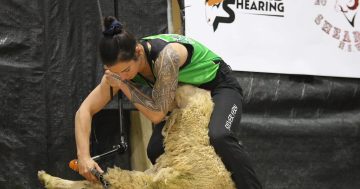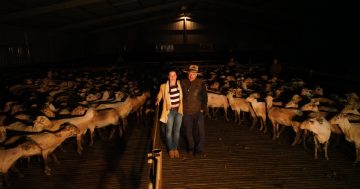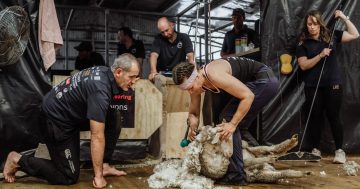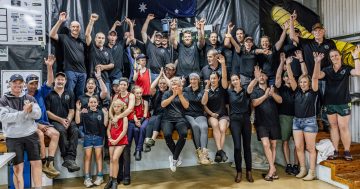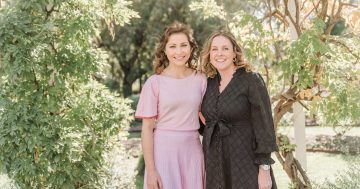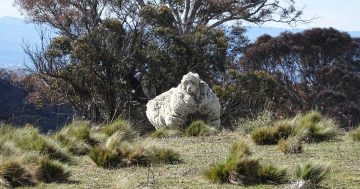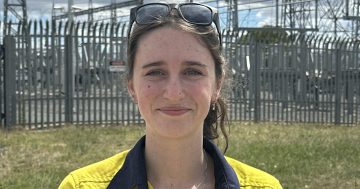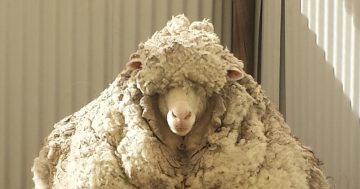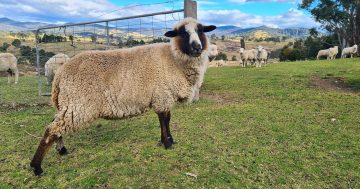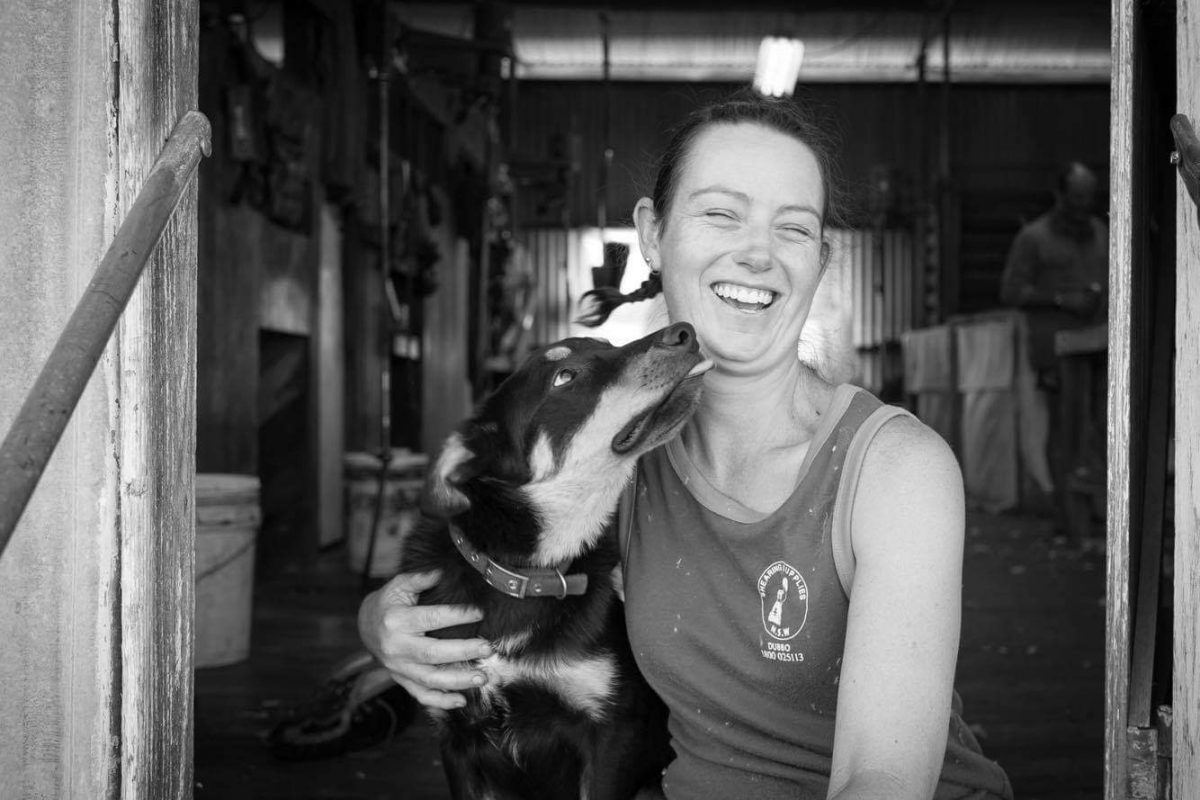
In the shearing sheds as in life, Kelly Wombey and her dog Kenny always work as a team. Photo: Belinda Bamford Photography.
Back in the day, if shearers heard there were women in the shed they were booked to work in, they’d turn around and move on to the next job.
Women and shearing sheds didn’t mix. According to Kelly Wombey, one of the region’s top wool classers, it was just how it was back then.
“That was about 25 years ago,” she said. “If shearers didn’t like women in the sheds they just wouldn’t come.”
As a youngster Kelly, who now lives in Yass, fell in love with the industry. The wool, the sheep, the sheds – and of course, the smell.
She was brought up on the family sheep farm run by her mother Margaret.
“The farm back then was right in the middle of Canberra; it was about a thousand acres near where Symonston is now,” she said.
“Mum ran it and we’d help out. I always loved school holidays because that meant it was shearing time.”
The farm was owned by the ACT Government and leased to the family.
“It started off a good size but gradually it was taken back by the Government until it became a snippet of what it originally was,” Kelly said.
“I think it’s back to just a couple of hundred acres now and it’s been made into a reserve.”
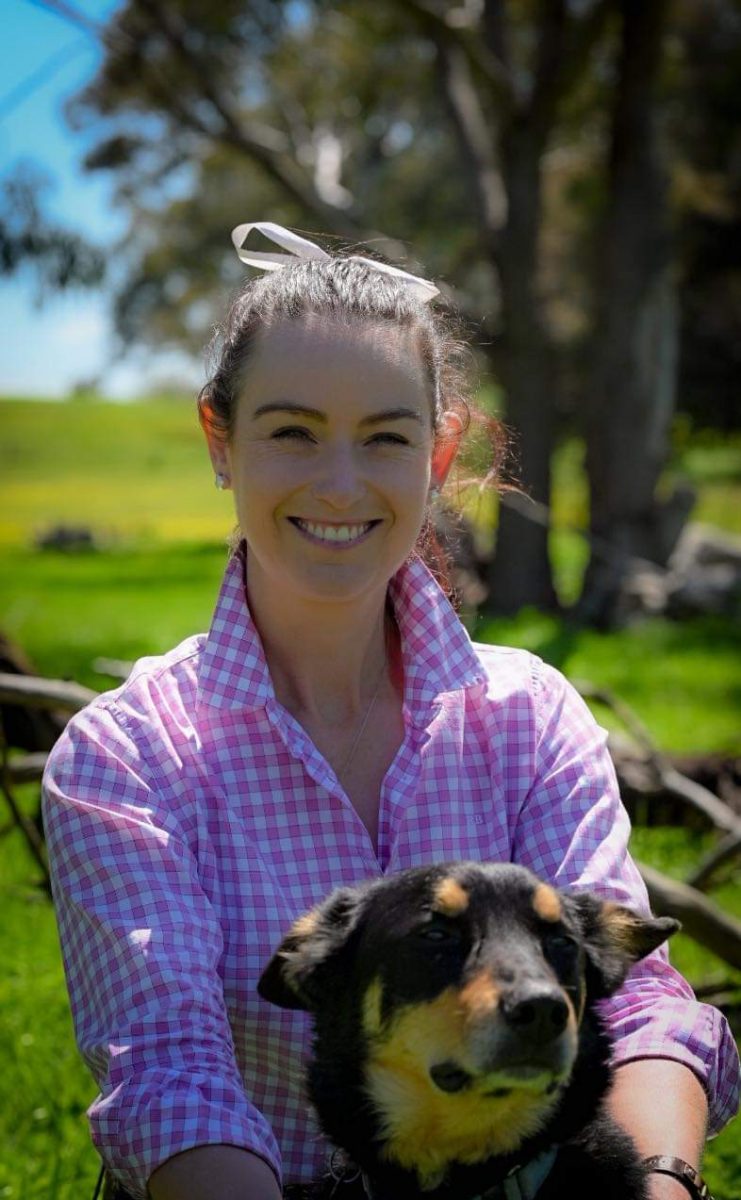
Kelly Wombey reckons there’s nothing wrong with bringing a touch of femininity into the shearing shed. Photo: Trent Hubber Photography.
Helping out on the farm as a youngster, getting to know all the shearers and developing a passion for the land stayed with Kelly into her later years. But to make a living, she worked various off-farm jobs after leaving school. They ranged from dental assistant to receptionist at a window company.
But work at a Landmark rural agency got her foot back in the door of where she wanted to be.
“I’d always wanted to get back to the land; it was always a passion of mine,” she said.
About 10 years ago when she was 34 and midway through her career, she decided it was the right time to go back to her first love and earn a living at the same time.
She contacted Australian Wool Innovation Limited (AWI), a not-for-profit agency that, through skills training, leadership programs and practical workshops, helps promote the Australian wool industry here and overseas.
“I just wanted to see what was available … I ended up doing my Class 4 Certificate in wool classing through the Illawarra TAFE,” she said.
“The role of a wool classer is to make sure every line of wool is uniform. This is where women and their attention to detail, thrive.
“You work with the roustabouts, teaching them what direction you want them to go – obviously not put 50-micron wool in with 100-micron.”
A classer examines wool in its raw state and classes it accordingly to length, thickness, quality, colour, strength and cleanliness.
Despite having left the industry for many years, Kelly slid back in with ease. Today she is based in Yass and works for a shearing contractor who tees up jobs for her.
“He might call me on a Saturday and say where the job is for me on the Monday,” Kelly said. “He tries to give me jobs on the Yass side but I’ve worked as far afield as Albury and I even went out to Western Australia but that was my choice.”
Kelly’s long-time companion Kenny, a black and tan kelpie, is always by her side – at home, on the road or in the shed.
“He comes to work with me every day,” she said.
“Everyone loves Kenny. He knows where he has to stay in the shed when they’re shearing. I’ll tie him up while I’m working but mostly when it’s time, he’ll go to the spot where he’s usually tied up and just go to sleep.
“He always seems to know, though, when it’s coming up to smoko and wakes up.”
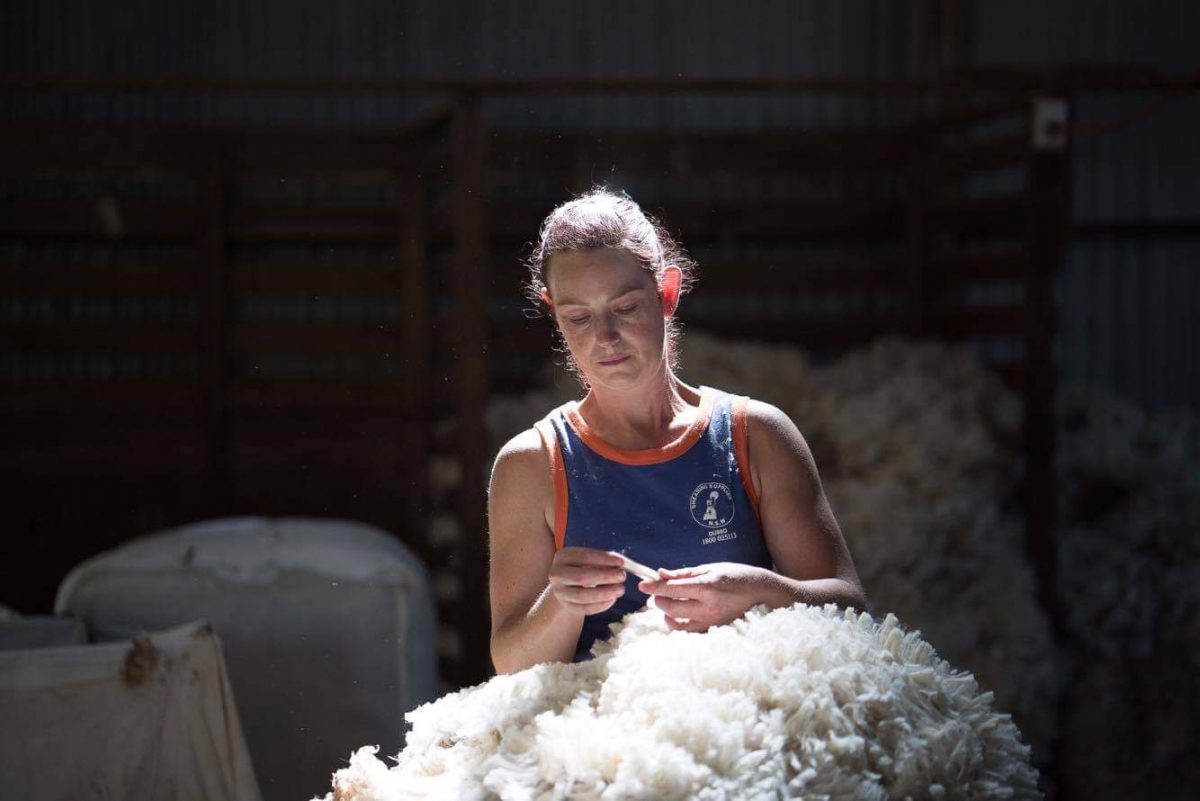
Wool classer Kelly Wombey at work in the shearing shed. Photo: Belinda Bamford Photography.
Kelly said it was easier for women to work in the sheds these days, but “you do have to prove yourself at the start”.
“You’ve got to be able to communicate well, to be able to deal with lots of different kinds of people from wool brokers to farmers and you have to inspire your team,” she said.
“Shearing is a community and everyone has a role in it.
“But I do like to bring a little femininity into the shed. Or at least I try to make my sock savers, scrunchie and singlet match,” she laughs.
Kelly said she was keen to encourage more women to enter the industry.
“Guys are great because of their strength but women are now being looked at with more favour because of our attention to detail, especially in classing and as roustabouts,” she explained.
“When you first find yourself in the shed it is sink or swim – but all you need is just a bit of confidence and you’ll be right.”







